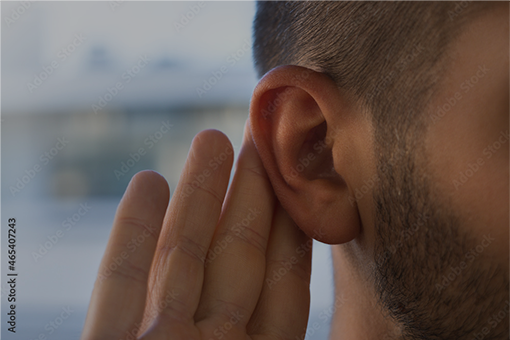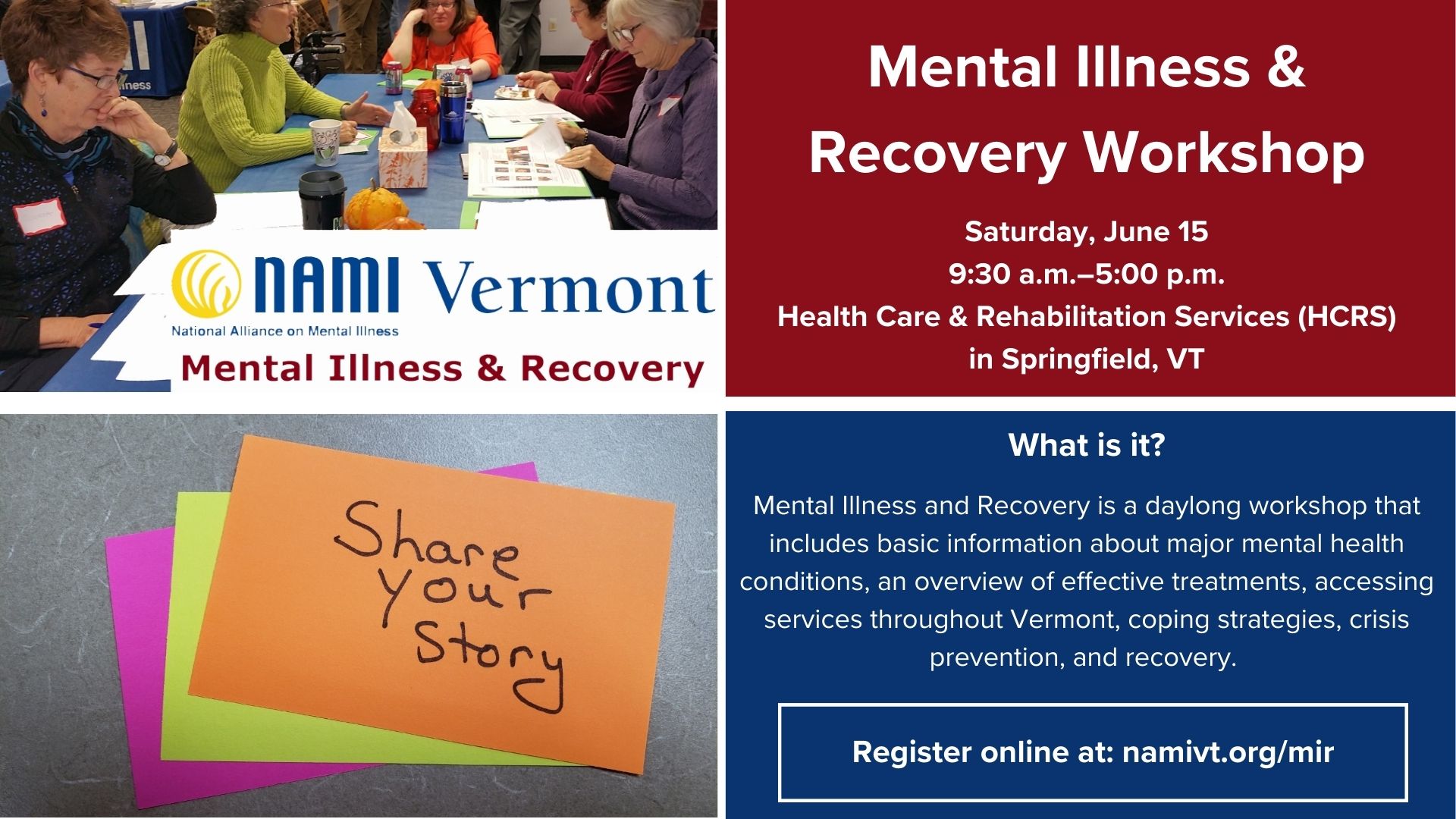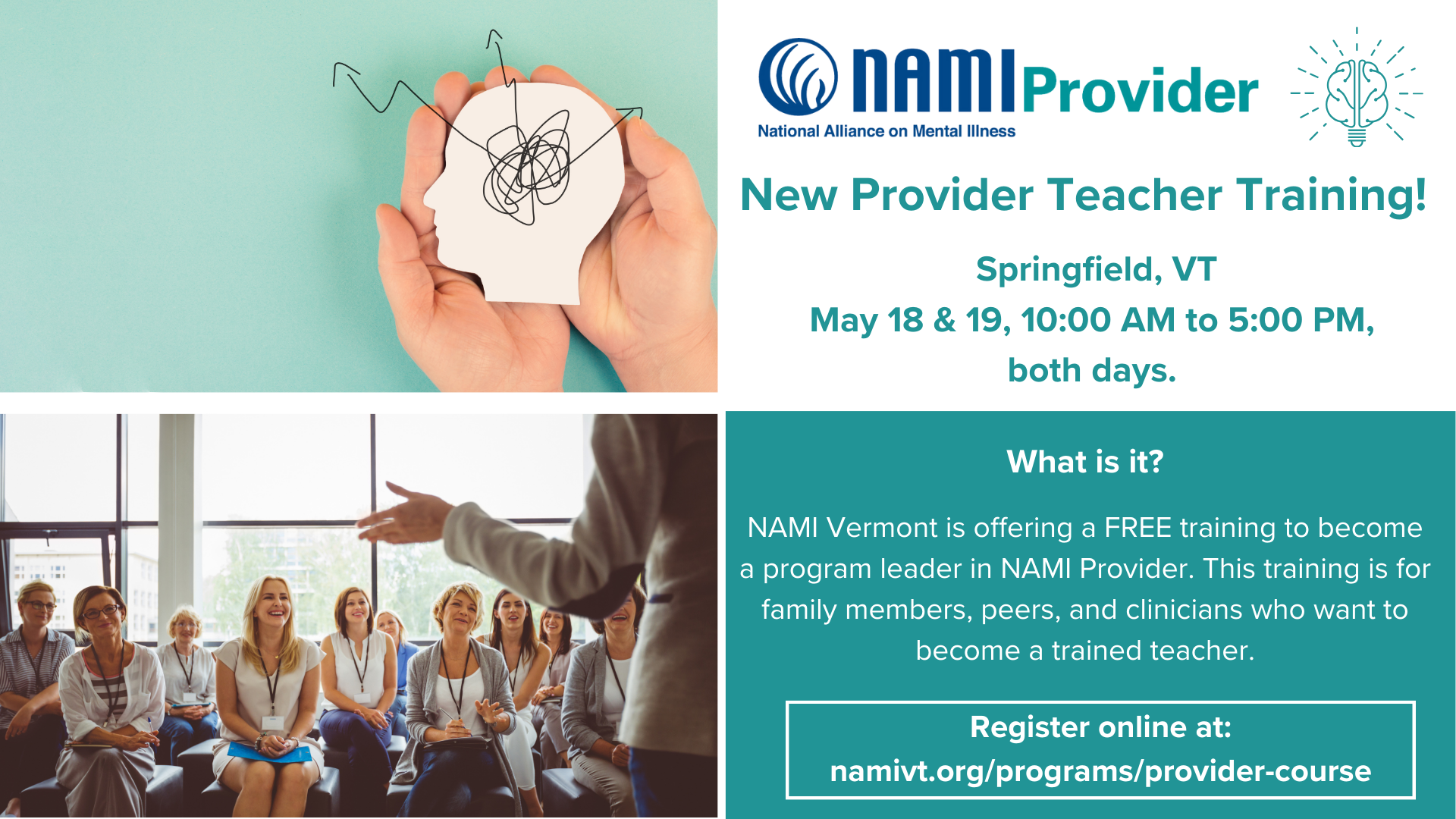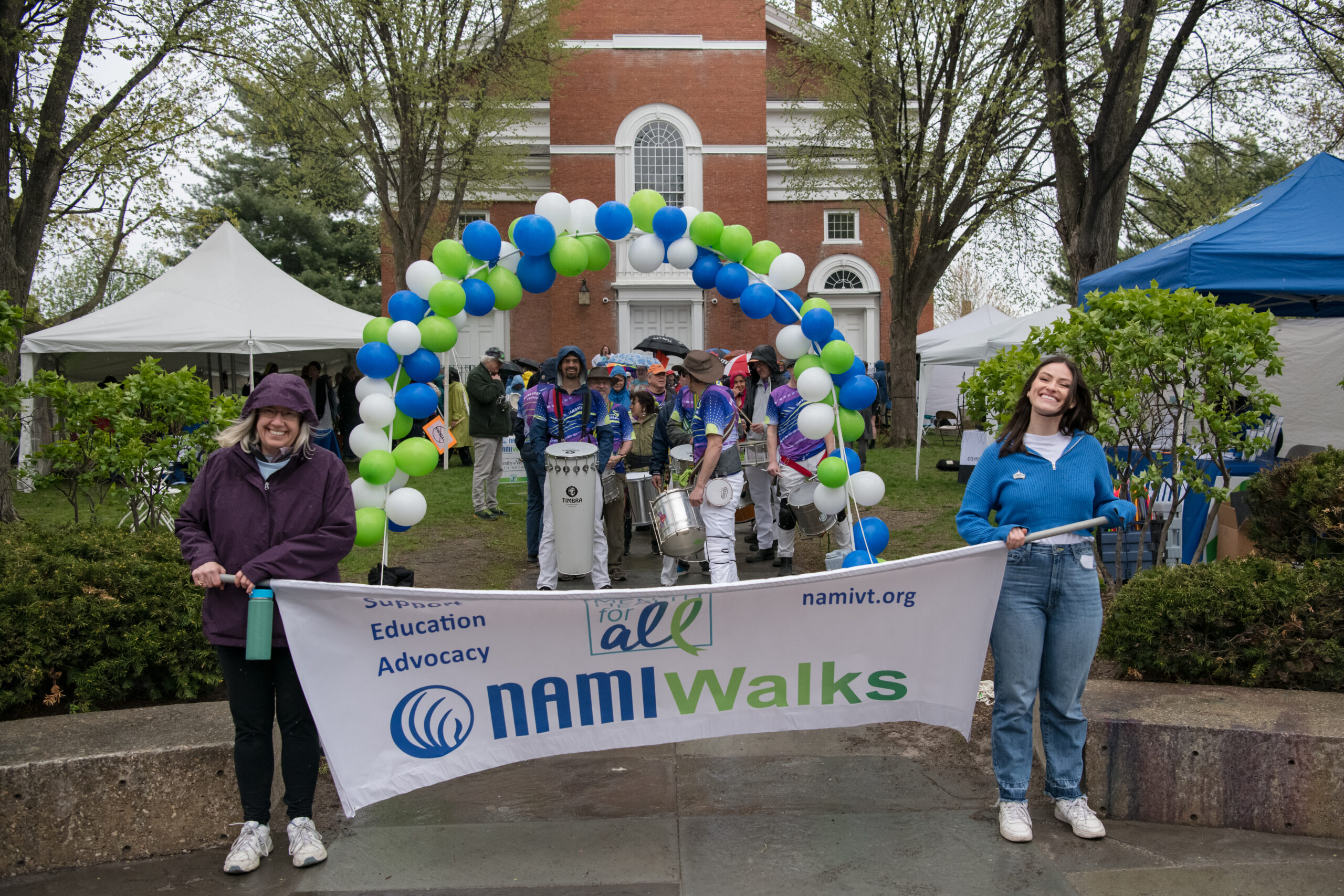
- The Library
- Program Curation
- Implementation Resources
- Contact MHI
- Support MHI

NAMI Ending the Silence
MODALITY: presentation

Plan your first presentation by Getting Started at NAMI.
Rubric and Standards
Mental health literacy components, high school learning standards, implementation, major findings, published studies.
- Get Started
Page Link Copied!
- Get Started (Top)
NAMI Ending the Silence is an engaging, educational presentation given by presenters with mental health lived experiences, that helps audience members learn about the warning signs of mental health conditions and what steps to take if a student or loved one begins showing symptoms of a mental health condition.
Decreasing stigma
Understanding how to foster and maintain positive mental health, understanding how to seek help effectively, understanding mental health disorders and their treatments, advocate for reducing stigma associated with emotional and mental and behavioral health, compare & contrast emotional, mental-behavioral illness, mental well-being and concurrent disorders, describe how self-harm or suicide impacts other people, describe laws related to minors accessing mental health care, explain how to help someone who is thinking about attempting suicide, identify school and community resources that can help a person with emotional, mental and behavioral health concerns, program material cost.
Classroom Presentation
Classrooms, health classes, school-wide assemblies, teacher professional development days, in-person or online
Grade Level(s)
2 Peer-Reviewed Publications
Study Types
1 Randomized Control Trial, 1 Quasi-Experimental Design
Study Samples
Country: US Sample Sizes: 206 and 932 Students Grade Levels: 9th to 12th Grade
NAMI Ending the Silence has been shown to be effective in improving high school students’ knowledge and attitudes toward mental health conditions and help-seeking.
Students completed a 12-item questionnaire about knowledge of mental health conditions, attitudes/social distance preferences, and help-seeking before, immediately after, and four to six weeks after the presentation. Significant positive change in overall scores and individual item scores occurred for students receiving the NAMI ETS presentation but not for students who did not receive the presentation. Improved scores were still apparent for the NAMI ETS students at follow-up but, again, not for students who did not receive the presentation. Results indicate that NAMI Ending the Silence is an effective mechanism for improving the knowledge and attitudes of high school students about mental health conditions.
The results suggest that NAMI’s Ending the Silence is well-liked by youth and has positive effects on multiple stigma dimensions for high school youth. Prospectively, mixed effects modeling indicated significant effects in favor of the ETS group for reduced negative stereotypes, improved mental health knowledge, and less anticipated risk for disclosing to a counselor. There were also trends in favor of the ETS group for reductions in intended social distancing and negative affect, and improvements in help-seeking intentions. Qualitative feedback indicated positive impressions of ETS overall, but suggestions for more interactive activities and discussion.
- Warning Signs and Symptoms
- Mental Health Conditions
- Common with Mental Illness
- Mental Health By the Numbers
- Individuals with Mental Illness
- Family Members and Caregivers
- Kids, Teens and Young Adults
- Maternal & New Parent Mental Health
- Veterans & Active Duty
- Identity and Cultural Dimensions
- Frontline Professionals
- Mental Health Education
- Support Groups
- NAMI HelpLine
- Publications & Reports
- Podcasts and Webinars
- Video Resource Library
- Justice Library
- Find Your Local NAMI
- Find a NAMIWalks
- Attend the NAMI National Convention
- Fundraise Your Way
- Create a Memorial Fundraiser
- Pledge to Be StigmaFree
- Awareness Events
- Share Your Story
- Partner with Us
- Advocate for Change
- Policy Priorities
- NAMI Advocacy Actions
- Policy Platform
- Crisis Intervention
- State Fact Sheets
- Public Policy Reports
NAMI Ending the Silence
NAMI Ending the Silence is a 50-minute presentation for young adults that helps raise awareness and change perceptions around mental health conditions.
Upcoming Events
NAMI HelpLine is available M-F, 10 a.m. – 10 p.m. ET. Call 800-950-6264 , text “helpline” to 62640 , or chat online. In a crisis, call or text 988 (24/7).

NAMI SEATTLE’S
Ending the silence presentations.

NAMI Ending the Silence is an in-school presentation designed to teach middle and high school students, parents, caregivers, and teachers about the signs and symptoms of mental illness, how to recognize the early warning signs, and the importance of acknowledging those warning signs.
These free, evidence-based, 50-minute sessions teach about mental health conditions through a brief presentation, short videos, and personal testimony from a young adult with a mental health condition who shares their journey of recovery.
What Your Audience Will Get
- Free of cost to schools and communities
- NAMI Ending the Silence for Students : 50-minute presentation designed for middle and high school students that includes warning signs, facts and statistics and how to get help for themselves or a friend. Research has shown that NAMI Ending the Silence for Students is effective in changing middle and high school students’ knowledge and attitudes toward mental health conditions and toward seeking help
- NAMI Ending the Silence for School Staff : 1-hour presentation for school staff members that includes information about warning signs, facts and statistics, how to approach students and how to work with families
- NAMI Ending the Silence for Families: 1-hour presentation for adults with middle or high school aged youth that includes warning signs, facts and statistics, how to talk with your child and how to work with school staff
Request an Ending the Silence Presentation
Interested in a presentation for a different audience? Let us know ! Our presenters are very flexible and our material can be adapted to suit a variety of audiences. If we don’t feel Ending the Silence is the right fit for your needs, we can direct you to another program that may better address the demographics of your group.
What People Are Saying
Thank you, for coming to my school and sharing your story. You have changed my life forever. The things you explained about your depression relate to how I feel. When I got home, I immediately talked to my parents and hopefully I will get some help.
I’m really grateful and glad that you talked to us. I often feel very alone or weird because many kids my age don’t understand. But, now I’m sure they would be more supportive of me.
It is amazing what just one day, one talk can do. You never really know what’s going on in the brain of any particular student.
Recently parents from two different families reached out to me after their children had seen NAMI Ending the Silence. Both were thanking me for the work we do along with being grateful to know about us as a resource. They were able to have very meaningful and open conversations with their children/students and happy they are getting this information in the school setting.
Fill out our request form
Request a nami seattle presentation.
We greatly appreciate requests submitted at least 4 weeks prior to your requested date(s). While we will make every effort to accommodate requests with a shorter turnaround, we may not be able to fill all requests.
Please contact Dalila Gittens , our Senior Program Manager, with any questions.

Thank You for Making Our Programs Possible!

You are not alone

“There’s hope and you can live a productive life even with the odds against you.”
Mar 18, 2024
An interview with Joey Wilson, NAMI Seattle Board of Director By Aryam Kfleyesus, Victoria Korohod, James Lee, Maya Vora, and Felicia Yeh, University of Washington Bothell School of Business Joey Wilson’s calm and genuine presence greeted us through the Zoom room as...

Taking Care of Ourselves
Feb 29, 2024
Written by: Cynthia Mwaura Self-care is the practice of taking action to promote and ensure one is physically, mentally, and emotionally healthy. We all have our own struggles that we go through. Yet, even with the struggles that come with living, we must slow down,...

“Gun violence is tied not to mental health, but is tied to easy access to firearms.”
Feb 22, 2024
An interview with Hazel Brown, the Policy and Advocacy Manager at Washington Alliance for Gun Responsibility, on restricting firearm access and providing support for gun violence survivors By Joshua Choi, Masa Hanatate, and Nuranissa SofiaUniversity of Washington...

“Sometimes people are ready to carry a lot of suffering, but it doesn’t have to be that way”
An interview with Agustina Eiff, Director of Clinical Services at King County Sexual Assault Resource Center By Hannah Dobes and Rushil GadamshettyUniversity of Washington-Bothell School of Business Content warning: this piece discusses mental health conditions as a...

Finding Gratitude in the Midst of Life
Feb 21, 2024
Written by: Cynthia Mwaura Many of us have now heard about making time for gratitude. One of the many mindful practices available to improve mental health. If you haven’t come across the power of gratitude, I will explain it briefly. Gratitude is the process of...

Paws for the mind: Therapy dogs now a partner to treat mental health
Feb 6, 2024
By Bennett Jochim, Masa Hanatate, Joshua Choi and Nuranissa Sofia, University of Washington Bothell School of Business Rushing into the library to shelter from the rain, we found ourselves in a room with brightly lit fluorescent lights. A few moments later, Nola and...

Our Story: ConChord Music Fundraising Event for NAMI Seattle
Nov 20, 2023
View the Fundraising Concert flyer and ticket details here. ConChord Music Fundraising Concert for NAMI SeattleDecember 10, 20236:30pm – 9:00pmLee Theatre at Forest Ridge School of the Sacred Heart4800 139th Ave SE, Bellevue, WA 98006 CONCHORD MUSIC...

“My time as a corrections officer really helped me begin to understand how complex mental health is, and how much it ties into everything else in a person’s surroundings.”
Nov 14, 2023
An interview with Abagail Reiman, board member of NAMI Seattle on how her experience as a corrections officer informed her on the intersections between mental health and the cycles of incarceration and homelessness. Abagail Reiman on a warm sunny day next to “ The...

Pawsitive Healing: Therapy Dogs Bringing Joy
Nov 9, 2023
Volunteers of College Dogs in front of the UW Bothell campus(left: Jen & Finn , middle: Julie & Romio , right: Lisa & Mara) By Jacquelyn Johnson and Bennett Jochim, University of Washington Bothell School of Business As we waited patiently and eagerly for...
![ending the silence presentation “…[I]f we can deal with it [coercive control] early…we’re in a sense preventing further crime.”](https://namiseattle.org/wp-content/uploads/2023/11/Jonathan-Lack-Blog-2-400x250.png)
“…[I]f we can deal with it [coercive control] early…we’re in a sense preventing further crime.”
Nov 3, 2023
A discussion with Commissioner Jonathon Lack on the impact of domestic violence on mental health and the update to the Washington domestic violence statute to include coercive control in the definition of domestic violence. By Karl Kafer, Medha Vadlamudi, Scott...

Sep 28, 2023
I got as close as I ever would to ending my life when I was 28 years old. My mental health had deteriorated to a point where I felt helpless to find a way out of the darkness of depression and self-loathing I existed in. Instead, I turned to alcohol and other destructive behaviors to cope with my pain and that led me deeper into the morass of hopelessness. I teetered on a precipice, barely clinging to life. And I realized that if things didn’t change, I wasn’t going to make it.

World Mental Health Day – Support Local Businesses
Sep 25, 2023
NAMI Seattle comes together with local businesses to celebrate World Mental Health Day on October 10th Join us in celebrating World Mental Health on October 10th and support local businesses who support mental health! We are incredibly thankful for these businesses...

Baking a Difference: An interview with Yasuaki Saito, A Passionate Entrepreneur and Baker on a Mission to Promote Mental Health and Strengthen Community.
Sep 21, 2023
“It's really important to us to create an environment that reduces stress and that gives our staff the feeling of being valued.” By Drew Miller, Daniel Kulik, Malicte Tesfaye, Jacob Wittkamp, Sevda Samandari, and Calvin NguyenUniversity of Washington Bothell School...

A FundaMental Evening
Sep 14, 2023
Join NAMI Seattle at rue Santé's A FundaMental Evening in celebration of World Mental Health Day this October 10th. We invite you to celebrate with us as we raise a glass, raise awareness, and raise funds for NAMI Seattle. Join us for an evening of music, laughter,...

Suicide Prevention Week of Action
Sep 11, 2023
Suicide Prevention Week of Action NAMI Seattle kicked off Suicide Prevention Week of Action with a resource tabling on World Suicide Prevention Day, September 10th. A big thank you to Rue Sante and Lazy Cow Cafe for having us talk about suicide prevention.King County...

Spreading Hope for Suicide Prevention Awareness Month
Aug 16, 2023
Opportunity Join NAMI Seattle’s video campaign to raise awareness and spread hope for Suicide Prevention Awareness Month this September. Shame and stigma thrive in silence, but telling our stories shares hope and spreads healing. We invite you to share your story and...

“Nothing ever comes easy. The journey has not been easy. I’m not going to tell you it is.” – Howard Behar
Aug 8, 2023
Mr. Behar joined us for an interview with a cheerful and welcoming demeanor. His warm smile and rosy cheeks, with glasses that sat perfectly on the arch of his nose, immediately gave us a feeling of understanding and comfort.

An Interview with Rania Rampersad, King County Superior Court Judge
Aug 2, 2023
By Rhett Whiteman, Kalin Natzev, Faiza Khalif, Ramla Geilani, Ebrima Jammeh, Sophie Udell, University of Washington Bothell School of Business Content warning: The following post contains topics that may be unsettling or triggering, including rape, torture, war...

The Forest and The Trees
Aug 1, 2023
I lay my head back against the upholstered chair and take a deep breath. I don’t quite feel settled, so I wriggle around until I find just the right spot to rest. All the while, I’m listening to the facilitator, her voice soft and low, like a lullaby coaxing me to let go

La importancia del sueño para la salud
Jul 17, 2023
El sueño es una necesidad fundamental de la naturaleza humana, tan necesaria como el agua y la comida. Dormir impacta directa y positivamente en nuestra salud y es vital para nuestra productividad durante el día y para nuestra salud física, mental y emocional. Una...

Shine 4 Mental Health
Jun 28, 2023
Join us as we Shine 4 Mental Health this summer! Raise awareness about the importance of mental health, share your story of hope, and connect with new friends, all while helping us raise funds for NAMI Seattle’s essential community-led programs.Volunteer! Create a...

Work it Out: A Conversation
Jun 26, 2023
I’m sitting at a small table across from my personal trainer, Greg Novasky, in an office at the back of the Emerald City Gym in Seattle. I glance around at the coral walls and scribbles on a whiteboard and then I look over at Greg who appears eager to talk about his experience – poised for conversation. He’s leaning forward, with a smile in his blue eyes.

“It is important to take our place and say that we belong here.”- Justice Mary Yu
Jun 22, 2023
Reflections on LGBTQ identities in America, Arlene’s Flowers, and healthcare access with Justice Mary Yu of the Washington State Supreme Court By Estefany Aguillon, Liann Tran, Bezawit Mulugeta, Andranik Gabriyelyan, and Ronaldo Carrada, University of...

En Nuestra Propia Voz: Presentaciones de salud mental
Jun 13, 2023
Presentaciones de salud mental Presentaciones gratuitas de la comunidad virtual Estas presentaciones cambian actitudes, suposiciones e ideas sobre las personas que viven con una condición de salud mental. Estas presentaciones gratuitas brindan una perspectiva personal...

NAMIWalks Washington 2023 THANK YOU!
Jun 12, 2023
NAMIWalks Washington 2023 Thank you to everyone who joined us, NAMI Washington and other NAMI affliates at NAMIWalks Washington on June 3rd. It was an honor to walk with you all for mental health awareness and mental health for all. You are an inspiration! We had a...

Navigating Through Compassion Fatigue
Jun 8, 2023
My Passion and Compassion Fatigue Becoming a nurse was a dream come true for me because I had always wanted to help people. But a few years into my career, I got burnout due to the increase in demand and workload. Things got worse during COVID. I got irritated easily....

Brother, Brother
May 31, 2023
The clang of the doors closing behind us made me shudder. I suddenly felt the gravity of the loss of one’s freedom. A prison guard, stern and unflinching, ushered us through massive steel doors to security where we relinquished our driver’s licenses through a steel cage barrier.

Stigma Free Seattle- Thank you!
May 30, 2023
NAMI Seattle's Stigma Free Seattle Event Thank you to everyone who joined us on May 20th for our first Stigma Free Seattle event to stop the stigma of mental illness and celebrate Mental Health Awareness Month! We were inspired by you all and truly had a blast...


Empathy and Justice: King County Prosecutor Leesa Manion and Senior Deputy Prosecutor Pete DeSantos’ Vision for Handling Cases Involving Severe Mental Illnesses
May 24, 2023
An interview with King County Prosecuting Attorney Leesa Manion and Senior Deputy Prosecuting Attorney Pete DeSanto (Part 2 of 2)

“Having an educated discussion with my family or friends is essential.”
An interview with King County Prosecuting Attorney Leesa Manion and Senior Deputy Prosecuting Attorney Pete DeSanto (Part 1 of 2)
NAMI Ending the Silence
Educator resources, guide to getting started, preparing for the presentation.
- Choose a date to offer Ending the Silence to your students or youth group.
- Notify those in charge of mental health supports at your school or organization so they're aware of the mental health education that you'll be providing. If you aren't aware of any mental health supports, do some research and identify them prior to offering Ending the Silence.
- Review the library of personal stories and choose the story(s) that will best meet the needs of your audience.
- Review the additional resources, including supplemental videos and downloadable activities , to enhance the Ending the Silence experience.
Day of presentation
- Connect with the mental health supports you identified while preparing for Ending the Silence so they can be available for any mental health needs of teens.
- Show the 25-minute Ending the Silence video .
- Show the personal story video(s) you've chosen for your classroom/group.
- Share any additional resources that you've chosen, as it relates to the needs of your classroom(s)/group(s).
- Give the students or youth group access to the student resources portal . They'll need your account's unique access key to access the site.
- Remember to fill out your evaluation — and have your students fill it out too!
Your Account
Details about your online access
Personal Stories Videos
Supplemental videos.
Matthew Diep
Matthew bravely shares his personal story growing up in a community that was not accepting of his identity. He explains how struggles with hiding his identity, the relationship with his family, and cultural expectations from the community added to his mental health challenges until a breaking point was reached. Once Matthew started to put himself and his mental health first, he was able to find the best fit for support.
Priscilla Stephanie Molina
IN SPANISH. Priscilla shares her mental health journey. As a young child, Priscilla saw her brother struggle with schizophrenia, to the point of him experiencing homelessness. Her family was resistant to treatment because of stigma and culture, which made it hard for her to accept help when she began to feel her own symptoms of depression. But with the support of friends and, ultimately, her family, Priscilla got the help she deserved.
Ryder Davis
Ryder shares his personal journey with bipolar disorder, from the first signs of mania, to hospitalization, to a treatment center, and ultimately, to recovery. He learned to accept his condition and commit himself to recovery. He also explains his experiences with medication and treatment and that even though he still has to manage his condition, he's been able to thrive. He also emphasizes how positive it has been for him to share his mental health journey with friends and with other young people.
Juan Acosta
Juan shares his journey towards recognizing his mental health needs, which started by asking his parents for help, accessing peer support, and talking to friends. Juan highlights how he was able to normalize talking about mental health in his community and how he began surrounding himself with people who did not define him by his mental health conditions and struggles. Juan has become his most genuine, creative self because of this.
Eliana Lopez
Trigger warning: Suicidal Ideation. Eliana shares her personal story of mental illness. She began feeling symptoms as a six-year-old child, but didn't receive care until her symptoms were severe. Despite a misdiagnosis, self-blame, and a suicide attempt, Eliana finally got the help she needed. She also shares the difficulty of explaining her diagnosis to her family, and how important that open conversation was for her relationship with them. Ultimately, Eliana realized that her diagnoses don't define her, only she can define herself.
Carmen Rosales
Carmen shares her story living with schizoaffective disorder, bipolar type. The challenges and stigma that she experienced at home and in school prevented her from speaking up when she started noticing signs that she was dealing with a mental health condition. She explains the importance of confiding in a trusted adult to get the care that a person needs sooner. Carmen teaches us why it is important to speak up about your feelings and treat them as worthy.
Brenda Sarai Zuniga
Brenda shares her journey to her ADHD diagnosis. As an undocumented immigrant from Mexico, she faced difficulties with her parents because mental health was a taboo topic in her household. Through therapy, medication, and positive coping skills, Brenda shares how well she's doing today.
Richelle Mintz
Richelle shares her personal mental health story, which began when she started experiencing panic attacks at age 10. She made the brave decision to be vulnerable and ask for the support that she needed a few years later, which led to her getting the treatment she needed. Richelle explains why there should not be stigma around medication or any of the various types of treatment, and how every person has a unique fit for them in terms of support.
Angelique Henderson
Angelique opens up about her journey with a sibling with bipolar disorder while growing up in a Black Caribbean household in New York. Despite being extremely involved in school and activities, Angelique faced mental health challenges that ended up isolating her from the things and people she loved, and pushed her to have suicidal ideation. Angelique finally opened up to her parents, who assisted her in getting help from a therapist. Her road to recovery was long and complicated, but she's now living well because of her work on herself.
Britt Turpack
Britt courageously tells the story about the bumpy road of her mental health journey. She explains why it is important to not let shame and fear of labels prevent a person from looking for mental health support. Once she started putting her mental health first in relationships with herself and others, she was more easily able to do this in all areas of her life. Now, Britt is better able to cope during challenging days using the professional and personal supportive spaces she has created.
Reginald A. Howard
Trigger warning: suicide, self-harm. Reggie shares his story of trauma and fear from guns and other violence that caused him in part to experience mental health conditions, including depression and anxiety. After becoming a father at an early age, his anxiety became overwhelming to the point of two suicide attempts. After researching mental health help, he joined a NAMI support group and sought therapy, despite a heavy stigma in his community. Now, Reggie has found hope and balance in his life.
Katie Zamos
In sharing her personal story dealing with bullying, anxiety, and depression, Katie describes how she was able to access mental health support once she decided to reach out to her school's vice principal. By allowing a trusted adult into her life, Katie no longer needed to follow her journey alone. She explains how she navigated what worked and what didn't, and how this is a normal process. Once she was willing to explore her options, Katie was more quickly able to locate resources for when she needed them.
Matthew cuenta con valentía su historia personal, cómo fue crecer en una comunidad que no aceptaba su identidad. Explica cómo la lucha para ocultar su identidad, la relación con su familia y las expectativas culturales de la comunidad fueron factores adicionales para sus desafíos de salud mental hasta que llegó a un punto cúlmine. Cuando Matthew comenzó a priorizar su salud mental, pudo encontrar la mejor opción para la ayuda.
EN ESPAÑOL. Priscilla comparte su recorrido con la salud mental. Cuando era niña, Priscilla vio a su hermano sufrir a causa de la esquizofrenia, hasta el punto en que se quedó sin casa. Su familia se resistía al tratamiento debido al estigma y a su cultura, lo que hizo que fuera difícil para ella aceptar cuando comenzó a sentir sus propios síntomas de depresión. Pero con el apoyo de sus amigos y, en última instancia, su familia, Priscilla obtuvo la ayuda que necesitaba.
Ryder comparte su recorrido personal con el trastorno bipolar, desde los primeros signos de manía hasta la hospitalización, su estadía en un centro de tratamiento y, en última instancia, la recuperación. Aprendió a aceptar su condición y se comprometió con su recuperación. También explica sus experiencias con los medicamentos y el tratamiento, y, aunque todavía tiene que manejar su condición, ha podido desarrollarse exitosamente. También destaca cuán positivo le ha resultado compartir su travesía de salud mental con sus amigos y otros jóvenes.
Juan nos cuenta el recorrido que tuvo hacer hasta reconocer sus necesidades de salud mental, lo que comenzó con pedirle ayuda a sus padres, acceder al apoyo de pares y hablar con amigos. Juan resalta cómo pudo normalizar el hablar sobre la salud mental en su comunidad y cómo empezó a rodearse de personas que no lo definían por su condiciones de salud mental y su lucha. Gracias a esto, Juan ha logrado alcanzar su máxima expresión de genuinidad y creatividad.
Advertencia desencadenante: ideas suicidas. Eliana comparte su historia personal con las condiciones de salud mental. Comenzó a tener síntomas cuando tenía seis años, pero no obtuvo atención hasta que sus síntomas se volvieron intensos. A pesar de un mal diagnóstico, la culpa personal y un intento de suicidio, Eliana finalmente pudo acceder a la ayuda que necesitaba. También relata lo difícil que le resultó compartir su diagnóstico con su familia y la importancia que tuvo esa conversación sincera para su relación con ellos. Por último, Eliana se dio cuenta de que su diagnóstico no la define y que solo ella puede definirse.
Carmen comparte su historia de cómo vive con el trastorno esquizoafectivo del tipo bipolar. Los desafíos y el estigma que sufrió en su hogar y en la escuela impedían que pudiera hablar cuando comenzó a notar signos de que estaba lidiando con una condición de salud mental. Explica la importancia de hablar con un adulto de confianza para obtener la atención necesaria rápidamente. Carmen nos enseña la importancia de hablar sobre nuestros sentimientos, sin pasarlos por alto.
Brenda nos cuenta su travesía con el diagnóstico de TDAH. Como inmigrante indocumentada mexicana, tuvo problemas con sus padres porque la salud mental era un tema tabú en su hogar. A través de la terapia, los medicamentos y las habilidades de superación positivas, Brenda nos cuenta que ahora está sintiéndose muy bien.
Richelle comparte su historia personal de salud mental, que comenzó a los 10 años con ataques de pánico. Unos años más tarde, tomó la valiente decisión de mostrarse vulnerable y buscar la ayuda que necesitaba, lo que le permitió recibir el tratamiento que necesitaba. Richelle explica que no debería haber un estigma alrededor del tema de los medicamentos o cualquiera de los tipos de tratamiento, y cómo hay un tipo de apoyo para cada tipo de persona.
Advertencia desencadenante: Ideas suicidas. Angelique se sincera sobre lo que vivió con su hermano, quien sufría trastorno bipolar, durante su infancia en un hogar negro caribeño en Nueva York. A pesar de estar muy involucrada en las actividades escolares, Angelique se enfrentó a desafíos de salud mental que terminaron aislándola de las cosas y las personas que amaba, y que la llevaron a tener ideas suicidas. Angelique finalmente habló con sus padres, quienes la ayudaron a obtener ayuda de un terapeuta. Su camino a la recuperación fue largo y complicado, pero actualmente vive bien debido al trabajo que ha dedicado a sí misma.
Con mucha valentía, Britt cuenta la historia de su difícil recorrido por la salud mental. Nos explica por qué es importante no dejar que la vergüenza y el temor de ser etiquetado evite que alguien busque ayuda de salud mental. Cuando comenzó a priorizar su salud mental en las relaciones con ella misma y con los demás, le resultó más fácil hacerlo en todas las áreas de su vida. Ahora, Britt está mejor preparada para superar los días complicados con el uso de los espacios de apoyo profesional y personal que creó.
Advertencia desencadenante: Suicidio, autolesión. Reggie cuenta que su trauma y su miedo a las armas y a otro tipo de violencia hicieron que tuviera depresión y ansiedad. Después de convertirse en padre a muy corta edad, su ansiedad se hizo intolerable, al punto que tuvo dos intentos de suicidio. Después de investigar las diferentes opciones de salud mental, se unió a un grupo de apoyo de NAMI y empezó a hacer terapia, a pesar del fuerte estigma que pesaba en su comunidad. Ahora, Reggie ha alcanzado la esperanza y el equilibrio en su vida.
Al compartir su historia personal de bullying, ansiedad y depresión, Katie describe cómo pudo acceder al apoyo de salud mental cuando decidió hablar con la vicedirectora de la escuela. Al permitirse confiar en un adulto, Katie ya no tuvo que continuar su recorrido en soledad. Explica cómo atravesó cosas que la ayudaron y otras que no lo hicieron, lo que es parte del proceso normal. Cuando estuvo dispuesta a analizar sus opciones, Katie pudo ubicar los recursos que necesitaba.
Richelle shares what self-harm is, why this negative coping-skill might happen, and ways to treat it.
Coming out can be a scary, difficult thing. The questions of whether support will be available and how to find it can be even more overwhelming. In this video, three LGBTQI+ identifying presenters discuss their own journeys coming out and how they were able to get support for their mental health while prioritizing their identities.
Positive Coping Skills
Britt shares what positive coping skills are and how to develop a mental health toolkit so that we don't fall into negative coping strategies. Britt also talks about the specific skills that help her cope.
PTSD/Trauma
In this resource video, Carmen talks us through her experience of being bullied and working through post-traumatic stress disorder (PTSD). She explains common symptoms of trauma and how they can be recognized. Carmen also outlines helpful steps to take towards finding support for anyone dealing with trauma themselves.
Treatment Options
Ryder talks about the many different mental health treatment options, like medication, one-on-one therapy, and group therapy. He shares that what might work for one person doesn't necessarily mean it will work for everyone, and the importance of trying new things until you find what's right for you.
How to Ask for Help
In this video, Priscilla and Brooke talk about the emotions surrounding asking for help. Reaching out to a caregiver, friend, or mental health professional are all helpful tools. Priscilla and Brooke discuss the tools that they have used when asking for help.
Angelique talks about different anxiety conditions, how they can affect your life, and the many ways to manage and treat anxiety.
Juan introduces us to advocacy and why it is important to speak up. He shares how his own identity, culture, and background put him on the path towards becoming an advocate. In this video, Juan talks about how to get started and shares the message that everyone has the potential to become an impactful advocate.
Katie talks about what depression can look like, and how to cope and treat it.
Reginald, Katie, and Carmen share their experiences being bullied, and demonstrate how they were able to take control over their situations to advocate for their mental health. In this video, the three presenters describe how they were able to develop confidence and coping skills which allowed access to the support they needed.
Descripción de la autolesión
Richelle nos cuenta qué es la autolesión, por qué podrían apelar a esta habilidad de superación negativa y las maneras de tratarla.
Salir del clóset puede ser algo difícil y atemorizante. Las dudas de si habrá apoyo disponible y las maneras de acceder a este podrían ser incluso más abrumadoras. En este video, tres presentadores que se identifican como LGBTQI+ abordan sus propias experiencias al aceptar su sexualidad y cómo pudieron obtener ayuda para su salud mental, sin dejar de priorizar sus identidades.
Habilidades de superación positivas
Britt nos cuenta qué son las habilidades de superación positivas y cómo desarrollar una caja de herramientas de salud mental para que no apelemos a estrategias de superación negativas. Britt también habla sobre las habilidades específicas que la ayudan a superar las situaciones.
TEPT/Trauma
En este video, Carmen habla sobre su experiencia al sufrir bullying y sobre cómo superar el trastorno de estrés postraumático (TEPT). Explica los síntomas comunes del trauma y cómo se pueden reconocer. Carmen también detalla los pasos útiles que se deben tomar para brindar ayuda a cualquier persona que esté atravesando un trauma.
Opciones de tratamiento
Ryder habla sobre las diferentes opciones de tratamiento para la salud mental, como los medicamentos, la terapia personal y la terapia grupal. Cuenta que lo que podría funcionar para una persona no necesariamente funcionará para todos, y sobre la importancia de intentar cosas nuevas hasta que descubras lo que es correcto para ti.
Cómo pedir ayuda
En este video, Priscilla y Brooke hablan sobre las emociones que se requieren para pedir ayuda. Ponerse en contacto con un cuidador, un amigo o un profesional de la salud mental son herramientas útiles. También analizan las herramientas a las que ellas apelaron al pedir ayuda.
Angelique habla sobre los diferentes trastornos de ansiedad, cómo pueden afectar tu vida y las diferentes formas de manejar y tratar la ansiedad.
Juan nos presenta el concepto de defensa y los motivos por los que es importante hablar. Comparte cómo su propia identidad, su cultura y su entorno lo pusieron en el camino para convertirse en un defensor. En este video, Juan habla sobre cómo empezar y comparte el mensaje de que todos tengan el potencial de convertirse en un defensor capaz de marcar la diferencia.
Katie cuenta cómo puede verse la depresión y cómo lidiar con ella y tratarla.
Reginald, Katie y Carmen comparten sus experiencias como víctimas de bullying y muestra cómo pudieron tomar el control de la situación para defender su salud mental. En este video, los tres presentadores describen cómo pudieron desarrollar su confianza y sus habilidades de superación, lo que les permitió acceder a la ayuda que necesitaban.
To help you and your audience

Awareness Events
A list of some select mental health awareness dates that you can incorporate into your classroom or meetings.

By the Numbers
An infographic that shares mental health trends in youth during the pandemic in 2020.

Supporting Students with Mental Health Concerns
Information about the signs and symptoms of a mental health condition and how you can best support students with different diagnoses.

Check-In or Exit Ticket
Understand and respond to how your students are feeling after completing an assignment, exam, or at the end of the school day.

Commercial Breaks
A fun activity to help your students become familiar with mental health resources in school and in their community.

Student Journal
An activity that helps students be mindful of their day-to-day tasks, goals and achievements. Will help students set and achieve goals while building confidence and resilience.

1 in 6 Activity
A great way to help students visualize the number of youth that are affected by mental health conditions. Can be done on a small or large scale.

Celebrity Snapshot
A research activity where students choose a celebrity to research and report out on ways they've been affected by mental health while achieving success.

Ending the Silence

Let others know that there is hope and understanding. You can change the way the world sees mental health.

NAMI Ending the Silence
Ending the Silence is an engaging presentation that helps audience members learn about the warning signs of mental health conditions and what steps to take if you or a loved one are showing symptoms of a mental health condition.
Ending the Silence presentations include two leaders: one who shares an informative presentation and a young adult with a mental health condition who shares their journey of recovery. Audience members can ask questions and gain understanding of an often-misunderstood topic. Through dialogue, we can help grow the movement to end stigma.
What Your Audience Will Get
- Free of cost to schools and communities
- NAMI Ending the Silence for School Staff: 1-hour presentation for school staff members that includes information about warning signs, facts and statistics, how to approach students and how to work with families
- NAMI Ending the Silence for Families: 1-hour presentation for adults with middle or high school aged youth that includes warning signs, facts and statistics, how to talk with your child and how to work with school staff
- NAMI Ending the Silence for Students: 50-minute presentation designed for middle and high school students that includes warning signs, facts and statistics and how to get help for themselves or a friend. Research > has shown that NAMI Ending the Silence for Students is effective in changing middle and high school students’ knowledge and attitudes toward mental health conditions and toward seeking help.
What People Are Saying
“I’m really grateful and glad that you talked to us. I often feel very alone or weird because many kids my age don’t understand. But, now I’m sure they would be more supportive of me.” -Student “Thank you, Renee, for coming to my school and sharing your story. You have changed my life forever. The things you explained about your depression relate to how I feel. When I got home, I immediately talked to my parents and hopefully I will get some help.” -Student “It is amazing what just one day, one talk can do. You never really know what’s going on in the brain of any particular student.” -Teacher “Recently parents from two different families reached out to me after their children had seen NAMI Ending the Silence. Both were thanking me for the work we do along with being grateful to know about us as a resource. They were able to have very meaningful and open conversations with their children/students and happy they are getting this information in the school setting.” -ETS Program Leader
Schedule An Ending The Silence Presentation
If you would like to host a NAMI Ending the Silence presentation at your school, contact your local NAMI Affiliate > . If the presentation isn’t already available, ask to bring it to your community.
Ending the Silence visit: https://www.nami.org/Support-Education/Mental-Health-Education/NAMI-Ending-the-Silence >
CALL OUR HELPLINE- 212-684-3264 • learn more

Request a Speaker

- Mental Health 101
- Ending The Silence
- In Our Own Voice
- NAMI-NYC Overview
- Workplace Mental Health
Ending the Silence
Helping middle and high school students understand their mental health can make a big difference in their lives..
Our FREE Ending the Silence program offers three presentations to choose from: one for middle and high school students, one for their parents/guardians, and one for school faculty/staff. Participants learn the warning signs of mental health conditions, discover strategies to improve mental health, and discuss the importance of open communication about mental health concerns.
Ending the Silence presentations are conducted by two leaders: one shares an informative presentation, and one is a young adult with a mental health condition who shares their journey of recovery. These presentations also include time for open discussion about mental health. Ending the Silence presentations are available either in person or virtually via Zoom.
Note: Our ETS presentation coverage area is limited to the New York City Metro area. Please contact NAMI National or your local NAMI Affiliate for presentations outside of New York.
Funding for Ending the Silence is provided in part by The Connor Sheehan Fund .

I’m a NAMI Ending the Silence presenter – Telling my story
“It is amazing what just one day, one talk can do. You never really know what’s going on in the brain of any particular student.” – Teacher
What You Get
Ending the Silence (ETS) is free of charge, and includes two leaders: one who shares an informative presentation, and a young adult with a mental health condition who shares their journey of recovery. Ask questions and gain understanding of a misunderstood topic.
Ending the Silence for Students
50-minute presentation designed for middle and high school students that includes warning signs, facts and statistics and how to get help for themselves or a friend. Research has shown that Ending the Silence for Students is effective in changing middle and high school students’ knowledge and attitudes toward mental health conditions and toward seeking help.
Ending the Silence for Staff
1-hour presentation for school staff members that includes information about warning signs, facts and statistics, how to approach students and how to work with families.
Ending the Silence for Families
1-hour presentation for parents, guardians, and other family members of middle or high school aged youth that includes warning signs, facts and statistics, how to talk with your child and how to work with school staff.
What People Are Saying
“I’m really grateful and glad that you talked to us. I often feel very alone or weird because many kids my age don’t understand. But, now I’m sure they would be more supportive of me.” – Student
Why Ending the Silence Matters

“Thank you for coming to my school and sharing your story. You have changed my life forever. The things you explained about your depression relate to how I feel. When I got home, I immediately talked to my parents and hopefully I will get some help.” – Student
How Your Students Benefit
Moving stories from positive role models have the power to change peoples’ views. The discussion gives students the rare opportunity to ask questions about mental health challenges to people who have lived it. The presentation’s message of empathy and hope encourages students to actively care for themselves and their friends. It also teaches them it’s okay to talk about what they’re feeling.
“Recently parents from two different families reached out to me after their children had seen Ending the Silence. Both thanked me for the work we do, along with being grateful to know about us as a resource. They were able to have meaningful and open conversations with their children/students, and are happy they are getting this information in the school setting.” – ETS Program Leader
To schedule an Ending the Silence presentation or to learn more, please complete this form.
- I’m Interested in Ending the Silence

Crisis Resources |
Public safety survey.

On Friday, May 10, 2024, NAMI Greater San Antonio, along with Bexar County Behavioral Health and St. Philip's College, held Bexar County Mental Health Awareness Day at St. Philip's College. It was a day dedicated to raising awareness about mental health which featured guest speakers and a community resource fair. Over 200 guests and 15 community organizations came together to help break the stigma surrounding mental health.

Ending the Silence
Mental health.
Ending the Silence are free engaging presentations designed to help middle and high school students, as well as staff understand facts and statistics about youth and mental health conditions, early warning signs, when and how to get help for themselves or others, and when it is not okay to keep a secret.
NAMI Ending the Silence is an engaging presentation that helps audience members learn about the warning signs of mental health conditions and what steps to take if you or a loved one are showing symptoms of a mental health condition.
NAMI Ending the Silence presentations typically include two leaders: One who shares an informative presentation, and a young adult with a mental health condition who shares their journey of recovery. Audience members are welcome to ask questions in order to gain understanding of an often-misunderstood topic. Through dialogue, we can help grow the movement to end stigma.
What Your Audience Will Get
Free service to schools and communities
NAMI Ending the Silence for Students: 50-minute presentation designed for middle and high school students that includes warning signs, facts and statistics and how to get help for themselves or a friend. Research has shown that NAMI Ending the Silence for Students is effective in changing middle and high school students’ knowledge and attitudes toward mental health conditions and toward seeking help
NAMI Ending the Silence for School Staff: 1-hour presentation for school staff members that includes information about warning signs, facts and statistics, how to approach students and how to work with families
NAMI Ending the Silence for Families: 1-hour presentation for adults with middle or high school aged youth that includes warning signs, facts and statistics, how to talk with your child and how to work with school staff
Schedule An Ending The Silence Presentation
Contact us if you would like to host a NAMI Ending the Silence presentation at your school.
What People Are Saying
“I’m really grateful and glad that you talked to us. I often feel very alone or weird because many kids my age don’t understand. But, now I’m sure they would be more supportive of me.” -Student "Thank you, Renee, for coming to my school and sharing your story. You have changed my life forever. The things you explained about your depression relate to how I feel.
When I got home, I immediately talked to my parents and hopefully I will get some help." -Student
"It is amazing what just one day, one talk can do. You never really know what’s going on in the brain of any particular student.” -Teacher

Ending the Silence
Ending the Silence is an engaging presentation that helps audience members learn about the warning signs of mental health conditions and what steps to take if you or a loved one are showing symptoms of a mental health condition.
About This Program
NAMI Ending the Silence is an evidence-based program. The presentation includes two leaders: one who shares an informative presentation and a young adult with a mental health condition who shares their journey of recovery. This presentation includes educational slides, videos, and discussion. Audience members can ask questions and gain understanding of an often-misunderstood topic. Through dialogue, we can help grow the movement to end stigma.
This free 50-minute presentation is designed for middle and high school students, school staff, and/or adult family members of students.
Joining NAMI Vermont as an Ending the Silence presenter is a paid opportunity!
Quick Links
What you will gain, how to register, related information, nami ending the silence.

What Your Students Will Learn:
- The science and impact of mental illness on youth as well as concrete ways to use this knowledge
- Signs and symptoms of mental illness
- That people with mental illness can live full lives
- Recovery and coping strategies
- How to speak up for themselves or a friend
- How to reduce stigma around mental illness
Ending the Silence for School Staff
What school staff will learn:.
- How to talk to students and their families about mental illness
- How to help students exhibiting symptoms
Ending the Silence for Families
What families will learn:.
- How to talk to school staff about youth mental health
- How to help their middle or high school-age family member

Schedule an Ending the Silence Presentation or Train to be an Ending the Silence Presenter
For more information, contact NAMI Vermont at (800) 639-6480 or email : [email protected]

Introducing ‘The Loudest Bork’ Competition!
Join NAMI Vermont in our quest to find the perfect pet ambassador for the ‘ Make Some Noise. End the Silence VT’ campaign. This social media campaign aims to engage and encourage young people living with mental health conditions to share their stories as part of our impactful Ending the Silence (ETS) program.
How You Can Help:
Nominate a Pet
If you know a pet that provides exceptional mental health support, please nominate them! To nominate an ambassador, email the pet’s photo, name, fun fact, and a brief story of how they support mental health to [email protected] . Note: Pet photos with humans require a signed release. Therefore, solo images are preferred. If nominating someone else’s pet, please include the pet parent’s contact information for consent.
Vetting (don’t worry, not that kind!)
We respect your privacy. If you nominate your own pet, we’ll review your submission with you to ensure it doesn’t include any mental health information you’re uncomfortable sharing. You can also choose to remain anonymous. If someone else nominated your pet, we’ll ask for your consent to include them in the competition and review the nomination with you. Again, anonymity is an option.
Vote for Your Ambassador
Stay tuned for our dedicated Loudest Bork webpage! You’ll be able to view the nominees and vote between March 21-31 at www.namivt.org .
What to Expect if Your Pet Wins
If your pet receives the most votes, the NAMI Vermont team will contact you to offer your pet the ambassador position for ‘Make Some Noise. End the Silence VT’ campaign. Upon acceptance, we’ll request photos or videos for the official announcement and inquire if you’re comfortable sharing a more in-depth story about their mental health support. Again, your privacy is our priority, so you can choose to share your story anonymously.
We hope to announce the winner in April. The Ambassador and pet parent(s) will receive some honorary swag. Throughout the year, we may request additional photos or videos of your pet. All content will be coordinated with respect to your preferences regarding posts featuring your pet.
How to Support the Ambassador:
- Boost the ambassador by liking and sharing their posts.
- Use the hashtags #MakeSomeNoise, #EndtheSilenceVT, and #Bork4MentalHealth!
- Share your story as an ETS presenter. To learn more, email [email protected]
Plus, we’ll communicate with all submitters, sending a consent form to feature their pets on our website, social media, and more! Let’s make some noise for mental health!
Related News

Springfield Mental Illness & Recovery Workshop

New Provider Teacher Training!

Walk for Mental Health – NAMIWalks Vermont 2024
You might also be interested in….

In Our Own Voice

Support Groups


Cleveland bikers Ride In Silence to raise awareness for road safety
C LEVELAND, Ohio (WOIO) - Cyclists across Cleveland are taking to the streets Wednesday to honor those who have been killed using public streets.
The Ride of Silence is a slow-paced ride that takes place across the world, according to organizers. They ask that riders keep a pace no faster than 12 mph and remain silent during the ride.
Bicyclists in Cleveland have two ride options to partake and show support.
Downtown, riders are invited to meet at Willard Park at 6:30 p.m. and ride five miles to University Hospital.
Bicyclists will be escorted by the Cleveland Police Bicycle Division, organizers say.
In University Heights, riders will meet at 6: 30 p.m. the John Carroll parking lot off Carroll Boulevard next to the Dolan Science Center.
The five-mile ride will end at University Hospital, officials say, led by the Heights Bicycle Coalition.
Riders are free to make their way back to the meeting spot after a short presentation, according to organizers.
The presentation allows those that wish to speak about how traffic violence has affected them to share their story.
Organizers say the recent crash report shows that in 2023, 550 people biking and walking were hit by motor vehicles in Cleveland.
There are no brochures, sponsors or registration fees for the ride.


COMMENTS
Ending the Silence is a free, evidence-based, 50-minute session designed for middle and high school students. Your students will learn about mental health conditions through a brief presentation, short videos, and personal testimony from a young adult who describes their journey to recovery. NAMI Ending the Silence presentations include two ...
NAMI Ending the Silence is an engaging, educational presentation given by presenters with mental health lived experiences, that helps audience members learn about the warning signs of mental health conditions and what steps to take if a student or loved one begins showing symptoms of a mental health condition. Rubric and Standards
NAMI Ending the Silence. Back to Map. NAMI Ending the Silence is a 50-minute presentation for young adults that helps raise awareness and change perceptions around mental health conditions. Filters.
NAMI Ending the Silence is an in-school presentation designed to teach middle and high school students, parents, caregivers, and teachers about the signs and symptoms of mental illness, how to recognize the early warning signs, and the importance of acknowledging those warning signs. These free, evidence-based, 50-minute sessions teach about ...
NAMI Ending the Silence (ETS) is a 50-minute interactive presentation that helps teens learn about the warning signs of mental health conditions and what ste...
In-Person Presentation Ending the Silence is a free, evidence-based, 50-minute session designed for middle and high school students. Your students will learn about mental health conditions through a brief presentation, short videos, and personal testimony from a young adult who describes their journey to recovery. ...
NAMI Ending the Silence for Students: 50-minute presentation designed for middle and high school students that includes warning signs, facts and statistics and how to get help for themselves or a friend. Research has shown that NAMI Ending the Silence for Students is effective in changing middle and high school students' knowledge and ...
NAMI Ending the Silence presentations include two leaders: one who shares an informative presentation and a young adult with a mental health condition who shares their journey of recovery. Audience members can ask questions and gain understanding of an often-misunderstood topic. Through dialogue, we can help grow the movement to end stigma.
NAMI Ending the Silence presentations include two leaders: one who shares an informative presentation and a young adult with a mental health condition who shares their journey of recovery. Audience members can ask questions and gain understanding of an often-misunderstood topic. Through dialogue, we can help grow the movement to end stigma.
Review the additional resources, including supplemental videos and downloadable activities, to enhance the Ending the Silence experience. Day of presentation. Connect with the mental health supports you identified while preparing for Ending the Silence so they can be available for any mental health needs of teens. Show the 25-minute Ending the ...
Ending the Silence is a fifty-minute presentation held in a school classroom or via Zoom about mental health designed for high school and middle school students. Students can learn about mental illness directly from family members and individuals living with mental illness. "I appreciated the structure of the program.
Ending the Silence is an engaging presentation that helps audience members learn about the warning signs of mental health conditions and what steps to take if you or a loved one are showing symptoms of a mental health condition. Ending the Silence presentations include two leaders: one who shares an informative presentation and a young adult ...
Ending the Silence. NAMI Ending the Silence is a free, engaging presentation that helps audience members learn about the warning signs of mental health conditions and what steps to take if you or a loved one are showing symptoms of a mental health condition. NAMI Ending the Silence presentations include a lead presenter who shares an ...
Ending the Silence presentations are conducted by two leaders: one shares an informative presentation, and one is a young adult with a mental health condition who shares their journey of recovery. These presentations also include time for open discussion about mental health. Ending the Silence presentations are available either in person or ...
NAMI Ending the Silence for Families: 1-hour presentation for adults with middle or high school aged youth that includes warning signs, facts and statistics, how to talk with your child and how to work with school staff. For more information or to schedule a presentation, please leave a message at 607-288-2460, or email [email protected].
24/7 Text NAMI to 741-741. Crisis Care 210-246-1300. Other Resources. Ending the Silence are free engaging presentations designed to help middle and high school students, as well as staff understand facts and statistics about youth and mental health conditions, early warning signs, when and how to get help for themselves or others, and when it ...
NAMI Ending the Silence presentations include two leaders: one who shares an informative presentation and a young adult with a mental health condition who shares their journey of recovery. Audience members can ask questions and gain understanding of an often-misunderstood topic. Through dialogue, we can help grow the movement to end stigma.
Schedule an Ending the Silence Presentation or Train to be an Ending the Silence Presenter. For more information, contact NAMI Vermont at (800) 639-6480 or email : [email protected]. Introducing 'The Loudest Bork' Competition! Join NAMI Vermont in our quest to find the perfect pet ambassador for the ' Make Some Noise.
NAMI Ending the Silence presentations include two leaders: one who shares an informative presentation and a young adult with a mental health condition who shares their journey of recovery. Audience members can ask questions and gain understanding of an often-misunderstood topic. Through dialogue, we can help grow the movement to end stigma.
NAMI Ending the Silence presentations include two leaders: one who shares an informative presentation and a young adult with a mental health condition who shares their journey of recovery. Audience members can ask questions and gain understanding of an often-misunderstood topic. Through dialogue, we can help grow the movement to end stigma.
The five-mile ride will end at University Hospital, officials say, led by the Heights Bicycle Coalition. Riders are free to make their way back to the meeting spot after a short presentation ...